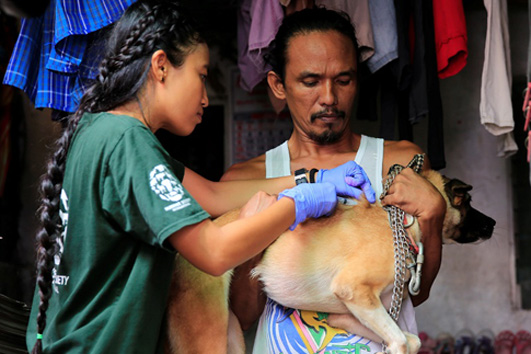
BACOLOD City – The City Health Office (CHO) is running out of anti-rabies vaccine.
CHO’s vaccine supply will only last until today, according to Nurse Gloria Parreño, a rabies coordinator in the city.
Rabies is a highly fatal viral disease that primarily affects warm-blooded animals other than man, notably dogs, cats, rats, and bats, but which can be transmitted to humans by infected animals.
The rabies virus, which is present in the saliva of an infected animal, is passed to a human through a bite, or rarely, when the animal’s saliva gets in contact with a scratch or fresh break in the skin.
Dr. Diana Rose Laput, CHO rabies medical coordinator, confirmed the shortage.
Laput said GlaxoSmithKline – one of the two companies supplying anti-rabies vaccines to the Philippines – had stopped its delivery after the Chinese government discovered bacterial residue in their products on March last year.
GlaxoSmithKline had been supplying the anti-rabies vaccine rabipur to the country while the other company Sanofi, the berorub.
Sanofi had continued sending its anti-rabies vaccine to the country but it was not enough.
According to Parreño, they still have no definite date when the supply would be restocked.
Last year, the CHO was able to administer anti-rabies shots to 8,580 animal bite patients, using 3,730 vials of berorub and 1,645 vials of rabipur.
In the first quarter of the year, CHO had administered anti-rabies shots to about 2,385 animal bite patients, using 1,200 berorub vials.
Rabies is a serious public health problem in the country. The Philippines is among the top 10 countries with the highest incidence of rabies in the world. Department of Health officials estimate that about 100,000 Filipinos are treated for dog bites and 200 to 300 die from rabies annually./PN




